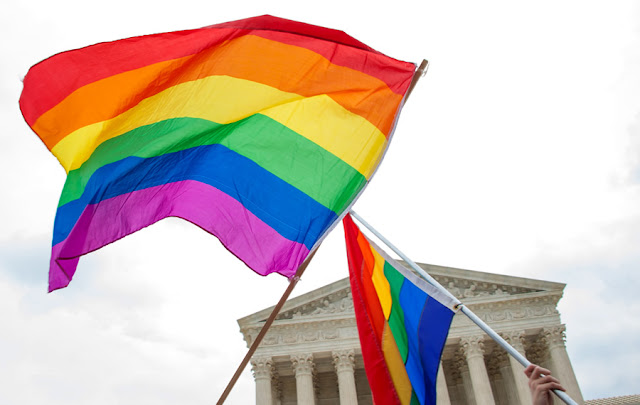The ‘Respect for Marriage Act’ Sets the Stage to Overturn Obergefell v. Hodges
While I am disappointed that the “Respect for Marriage Act” (RFMA) passed in the U.S. Congress, I am convinced that this bill will be the undoing of the Supreme Court’s 2015 same-sex marriage opinion in Obergefell v. Hodges. We fought hard to stop HR 8404, and we came very close to killing the bill thanks to so many citizens engaged in preserving religious freedom in America. To them, I would say, “Don’t get discouraged.” Now we move to the next strategy, in which I have a high level of confidence. The advocates of RFMA may celebrate today, but that celebration will not last.
Lawmakers and LGBTQ advocates have unwittingly created the perfect scenario to fix the mess the High Court originally created. Obergefell, like Roe v. Wade, has no constitutional foundation. Overturning Obergefell would return the regulation and definition of marriage to the States as it was throughout our history up till the Court issued its flawed opinion in June 2015. Like abortion, many states would return to their laws prior to the Court’s decision — meaning most states would define marriage as the union of one man and one woman.
Past History is Prologue
To give you some context for why I am optimistic, let me share a few points from recent legal history. In 1990, when the Supreme Court severely weakened the Free Exercise Clause, Liberty Counsel pioneered a new legal strategy to win. We argued the Free Speech Clause protects religious expression and acts of worship. We developed the viewpoint discrimination argument. Now, this is a common legal argument, but it was novel at the time. This legal argument resulted in many victories at the High Court, including our 9-0 win this year in the Shurtleff v. City of Boston Christian flag and Coach Kennedy cases.
When a generic prayer offered by a Rabbi at a high school graduation was struck down in 1992, we pioneered student-initiated prayer — and we won in the Adler v. Duval County School Board case against the ACLU. And beyond graduation prayer, our legal strategy included overturning the 1971 Lemon v. Kurtzman case that was frequently used to censor religious expression, symbols, and displays. And this year with our Christian flag and the Coach Kennedy cases, we got that awful precedent overturned.
Obergefell is Hanging by a Thread
Prior to 2015, we had won about 50 cases defending marriage as one man and one woman. Then the 5-4 Obergefell opinion was released. Three of the five Justices in the slim Obergefell majority are no longer on the Court — Kennedy, Breyer, and Ginsburg. Chief Justice John Roberts issued a stinging dissent. In it, he wrote, “The majority’s decision is an act of will, not legal judgment. The right it announces has no basis in the Constitution or this Court’s precedent.”
Besides Roberts, Justice Thomas and Justice Alito also dissented. Justices Gorsuch, Kavanaugh, Barrett, and Jackson have since joined the High Court. The slim majority in 2015 is gone.
What RFMA Did and Did Not Do
The RFMA cannot define marriage for the states. In 2013, the Supreme Court in the United States v. Windsor struck down that part of the Defense of Marriage Act (DOMA) that purported to define marriage for all the states as the union of one man and one woman. The Court noted that domestic relations and the definition of marriage are “an area that has long been regarded as a virtually exclusive province of the States.”
The second part of DOMA said that one state did not have to recognize same-sex marriage in another state. This is the provision that the Respect for Marriage Act repealed and now requires one state to recognize the same-sex marriage of another state.
RFMA has doomed Obergefell
Until now, the biggest obstacle to overturning Obergefell was based on those who relied on the decision to obtain a marriage license. What happens to these licenses? The consequence of overturning Obergefell is now off the table and is no longer a policy reason for upholding the opinion.
In other words, it is easy to attack Obergefell on its merits, but the consequence of overturning it could, until now, result in chaos. The merits argument of why Obergefell should be overturned is easy. The policy argument that doing so would cause disruption has always been the most difficult to overcome — until now.
As a result of RFMA, when Obergefell is overturned, those who obtained licenses will be “grandfathered” in, and the licenses will remain valid.
However, like abortion, the Supreme Court will overturn Obergefell and return marriage to the states, which will then be free to return to their laws prior to 2015 with marriage as the union of one man and one woman.
Our Case Involving Former Kentucky Clerk Kim Davis May be a Vehicle to Overturn Obergefell
The Kim Davis case is working its way back to the Supreme Court where one of the arguments will be that Obergefell was wrongly decided. Justices Thomas and Alito have already invited future challenges to Obergefell since the decision was never constitutional.
Justice Thomas previously wrote, “Davis found herself with a choice between her religious beliefs and her job.” He continued, “Davis may have been one of the first victims of this Court’s cavalier treatment of religion in its Obergefell decision, but she will not be the last.” Justice Thomas said “the Court has created a problem that only it can fix. Until then, Obergefell will continue to have ‘ruinous consequences for religious liberty.’”
The drafters and supporters of RFMA did not intend for the consequence that is forthcoming. But it will come. Like Roe, the days of Obergefell are numbered.
Mat Staver is the Founder and Chairman of Liberty Counsel and Chairman of Liberty Counsel Action.



